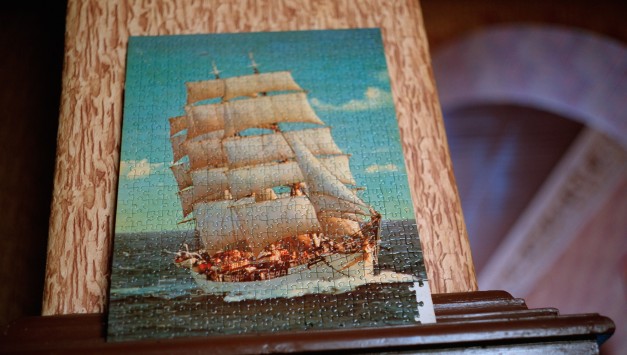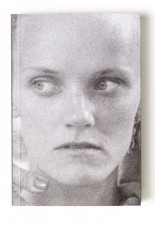Paul Graham: New Europe
Węgierska 5 Kraków
14.05 - 10.06.2016

The photographic practice of Paul Graham, by now spanning almost four decades, is based on long-term commitments of both theme and geography. His early works, focusing on Britain and Northern Ireland during the Thatcher years, had a revolutionary effect on the genre in the UK thanks to his use of color film in the context of social documentary.
In 1983, Graham published his first acclaimed work, A1: The Great North Road, focusing on the everyday along one of Britain’s main north-south traffic arteries. This was followed in 1986 with Beyond Caring, a biting commentary on Thatcherism, looking at the dire interiors of British unemployment benefit offices. Finally, the book Troubled Land (1987) combined urban and rural landscapes with the realities of the smoldering sectarian conflict in Northern Ireland.
The series New Europe, presented here, was completed between 1986 and 1992 and published as a book in 1993. That same year it was also presented as the inaugural exhibition of Fotomuseum Winterthur, curated by Urs Stahel. Developing the project during a series of trips through nine Western European countries—Germany, Switzerland, Italy, Spain, France, Belgium, the Netherlands, England, and Northern Ireland—Graham explored the tensions that he and his generation felt with respect to the future prospects of Europe. But it also speaks to the continent’s recent past, from World War II to the fall of the Berlin Wall.
New Europe also marked a crucial moment of transition in Graham’s artistic career, enabling him to establish an emerging aesthetic. By “using and abusing” classic genres of photography—the portrait, the landscape, the still life—he charted a cultural topography spanning nine countries; furthermore, his use of color and composition revealed how social relations and political trauma are inscribed inherent in the everyday.
Today one can read daily about various forms of crisis (perceived and/or real) relating to the European Union, its democratic culture, institutions, borders, and deteriorating ideals. In this era of renewed fear and uncertainty, it is all the more crucial to reflect on ideas and values regarding the concept of Europe, and on how these will shape all of our lives in terms not only of physical borders but of mental ones as well. This, then, is the pertinent historical moment and juncture that create the context to revisit and thereby recontextualize Paul Graham’s body of work in New Europe.
Curator: Lars Willumeit
Paul Graham (1956, UK) is a British photographer living and working in New York City. Since 1981, Graham has produced fourteen distinct bodies of work that investigate and challenge notions of documentary, the medium of photography, and its conventions of presentation. Most of these series have been published as monographic books. Graham has been the subject of more than eighty solo exhibitions worldwide.
Lars Willumeit (1974) is a German curator, social anthropologist, and photo editor. His interests lie in photography, documentarisms, regimes of representation, and visual cultures. From 2008–2013, he served as photo director of Du: Die Zeitschrift der Kultur. He lives in Zurich, Switzerland.
Exhibitions: Beyond Evidence: An Incomplete Narratology of Photographic Truths (co-curated with Louise Clements; FORMAT International Photography Festival, Derby, 2015); For Future Reference (Paris Photoand Unseen Photo Fair Amsterdam, 2014); Tanya Habjouqa,Occupied Pleasures (East Wing, Dubai, 2014).
Publications (as contributing author): Fabrik, the catalogue of the German Pavilion at the 2015 Venice Biennale (Verlag Walther König, 2015); FORMAT15 Evidence (Format InternationalPhotography Festival, Derby, 2015); Deposit by Yann Mingard (Steidl, 2014).
Starmach Gallery
ul. Węgierska 5
Opening: 13.05.2016, 6 p.m.
Exhibition open: 14.05–10.06.2016
Mon–Fri 11 a.m.–6 p.m., additionally Sat–Sun 14–15.05, 21–22.05, 04.06, 11 a.m.–6 p.m.
26.05, 27.05 closed
free admission
